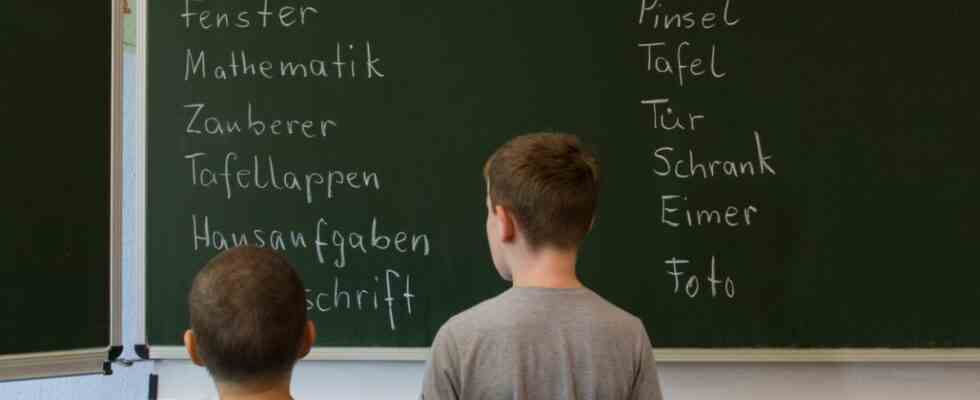The results of the education report are frightening, says Martin Schmid, chairman of the Munich Teachers’ Association (MLLV). But he expected it: “It took us a long time to transport knowledge digitally in times of the pandemic.” Now it’s about reacting, and you’re behind. “Because what do we need most now?” asks Schmid, and gives the answer himself: “Trained teachers. And we don’t have them.”
The IQB education trend 2021 has been published and even if Bavaria is one of the countries that performs the least badly, it is clear that something has to happen. Because Bavaria’s fourth graders have also deteriorated in all categories: in reading, listening, spelling and mathematics. Bavaria’s Minister of Education Michael Piazolo (FW) speaks of the homework that the study is giving to the education ministers nationwide. “We have to work together to ensure that skills levels rise again.”
The study examined the competences of fourth graders in German and mathematics, it was carried out for the third time after 2011 and 2016. In Bavaria, children from 88 primary schools and twelve special needs schools took part last spring and summer. When it comes to reading and spelling, Bavaria’s fourth-graders take first place nationwide, and second when it comes to listening and mathematics – i.e. above average despite the deterioration.
Do you prefer sustainability projects – or concentrate on arithmetic and reading?
The results matched what they experience in the schools, says Bettina Betz, head of the Munich State Education Authority. “It’s a bit worrying.” The fact that the skills of the fourth graders are falling is due to Corona, but also because many children in Munich have come to the schools without German language skills since 2015. “Every school now has to analyze: Where are the children? Where is there a need to catch up?” She asks whether society doesn’t have too many different expectations of primary schools. “Do we need the hundredth sustainability project or do we concentrate on teaching the basic skills of reading and arithmetic?”
So what’s next? The Ministry of Education refers to existing support programs such as “Building Bridges Together”, the Filby reading support program and the Sinus mathematics program. “The effort to develop teaching and teaching quality is a long-term process that requires time and continuity,” said a spokeswoman for the Ministry of Education. In order to counter the shortage of teachers, which the study named as a nationwide challenge, Bavaria is implementing numerous measures. For example, the training capacities in the area of special schools were expanded, and the numerus clausus for primary school teachers was abolished.
The Bavarian Business Association welcomes the “very good performance” of the Bavarian elementary school students, but sees further need for improvement in view of the nationwide declining level of education. The elementary school lays the foundation for later career paths and for securing skilled workers in Bavarian companies, said General Manager Bertram Brossardt. Disadvantaged children would have to be supported even more in order to counter the growing educational inequality.
In order to attract more teachers in the future, MLLV boss Martin Schmid calls for modernized teacher training with a kind of basic course for all prospective teachers. According to Schmid, a standardized course of study would be a logical consequence of the fact that teachers at all schools will soon receive the same starting salary.

